Technology


5 min

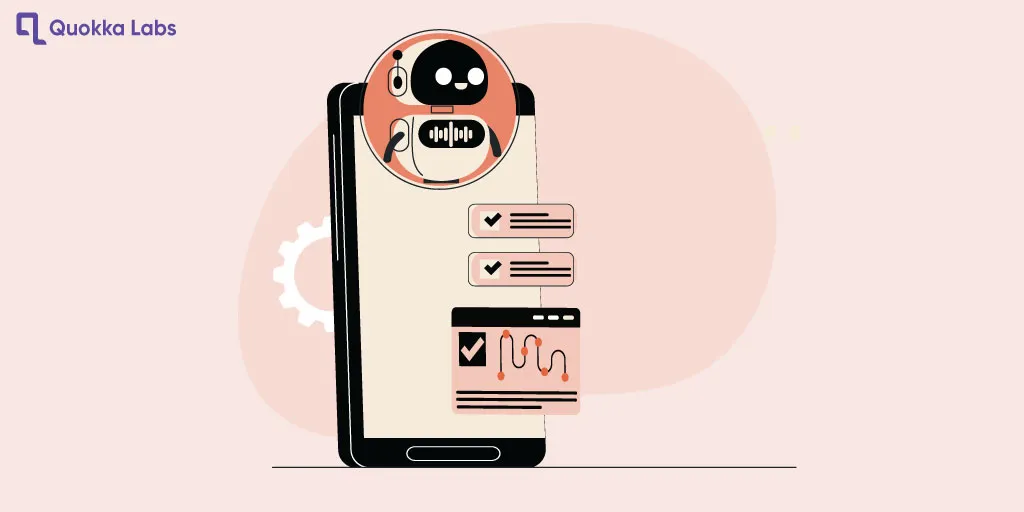
Artificial intelligence (AI) is transforming the field of quality assurance (QA), automating tasks, improving accuracy, and preventing defects. AI-powered tools can analyze code, simulate user behavior, and identify potential problems before they cause outages or customer dissatisfaction.

By Anupam Singh
11 Sep, 2023
Quality assurance encompasses activities and processes designed to monitor and assess the quality of products, services, or processes. It involves detecting defects, identifying areas for improvement, and ensuring compliance with predetermined standards. Quality assurance is critical to maintaining competitiveness and building customer trust in various industries such as manufacturing, healthcare, finance, and software development.
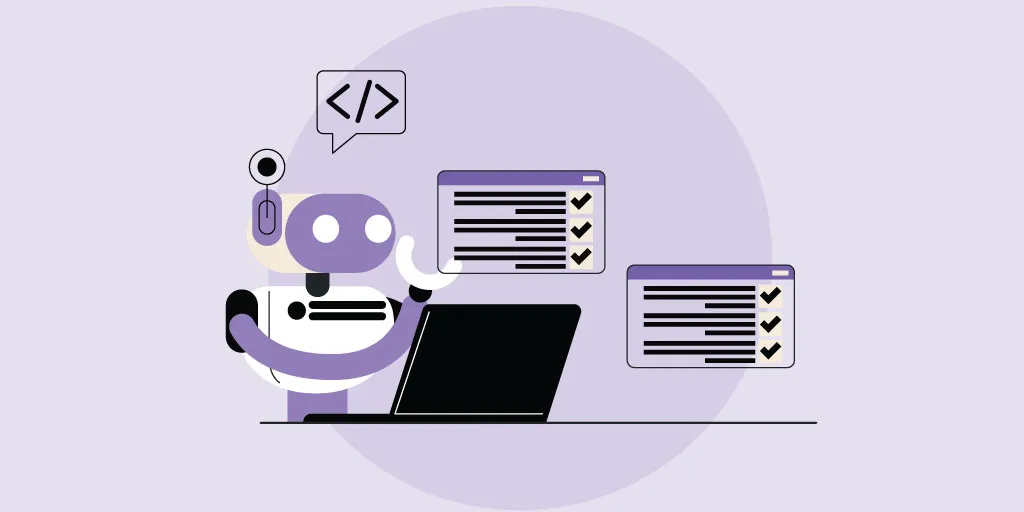
To gain a deeper understanding of the subject matter, let's begin by defining the concepts of software testing and artificial intelligence.
The software testing phase holds immense significance in software development. It involves exploring and learning. Artificial intelligence is a branch of computer science that works with software to ensure its expected functionality, reliability, security, user-friendliness, and other aspects contributing to a positive user experience.
The significance of software testing lies in its impact on user acquisition and retention, return on investment (ROI), reputation, competitive advantage, and more.
Performing thorough software testing often requires significant time, effort, and resources. However, in today's market, where speed-to-market is paramount, there is a constant need to streamline and expedite software testing processes.
Artificial intelligence, a field in computer science, empowers machines and programs to undertake tasks that traditionally demand human intelligence. These tasks encompass speech recognition, visual perception, decision-making, and more. AI enables data analysis, predictions, decision-making, and other complex tasks.
By leveraging AI algorithms, systems can emulate human intelligence accurately, while ML enables them to learn from data without human intervention. In simple terms, AI and ML can gather and analyze data, uncover patterns, and make informed decisions and predictions.
These capabilities can significantly benefit the efficiency of software testing processes.
Also read: Best Practices of Unit Testing
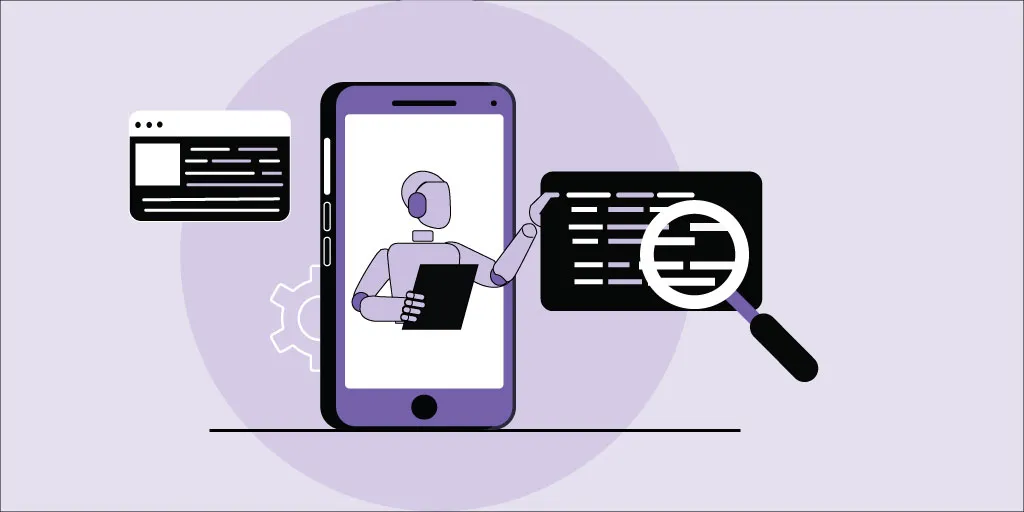
Software testing has evolved significantly, initially relying solely on manual testing. However, due to its slow and labor-intensive nature, a pressing need arose to optimize software testing processes. It led to the emergence of automation testing, which enabled faster test execution.
Continuous testing is rapidly adopted, where automated tests are executed within the product delivery pipeline to swiftly identify potential risks associated with a release candidate. Continuous testing harnesses the power of automation testing to cope with the increased complexity and accelerated pace of modern software development and delivery.
Nevertheless, it is widely acknowledged that even with these advancements, there will soon be a need to address the ever-growing demand for lightning-fast product delivery. Therefore, the future of software testing is frequently associated with the active integration of AI.
Automated tests are executed automatically, but QA experts must manually write and maintain scripts, which consumes time and could be more cost-efficient. The application of AI in the software testing industry, particularly in areas such as automated test case generation, test execution, test selection, and test maintenance, shows great promise.
Initial strides have already been taken, and some AI-powered test automation tools are available in the market, although they still require further refinement. Nevertheless, there is no doubt that significant breakthroughs in this field are on the horizon.
Incorporating AI into software testing is on the brink of revolutionizing the field, heralding a fresh era of intelligent automation and reshaping the responsibilities of QA engineers. Experts optimistically predict that AI-based software testing will evolve into an independent industry, potentially replacing traditional QA roles.
Instead, QA engineers will transition into overseeing and fine-tuning AI-powered testing processes while monitoring the results. Recognizing the immense potential of AI in software testing, forward-thinking companies have already begun investing in this technology.
AI is expected to be critical in testing product requirements through predictive analysis. By examining similar applications and solutions, AI can gain insights into customer needs, facilitating more effective requirement testing.
The QA community has high expectations for AI in terms of autogenerating tests. Current efforts focus on enabling AI/ML-powered automation testing solutions to learn business usage scenarios of the application under test (AUT).
To identify app behavior patterns, machine learning algorithms can analyze collected data, such as screenshots, page loading times, and HTML pages. AI-powered testing tools can automatically compare the current app performance with these patterns, flagging potential issues.
However, human testers are still necessary to validate these findings, as specific differences may be valid or require further investigation.
AI has already demonstrated its capabilities in UI testing. AI-powered UI testing tools analyze the Document Object Model (DOM) and corresponding code to verify UI element properties. Image recognition is also utilized for validating UI elements. These tools employ exploratory testing techniques to detect UI issues and capture screenshots for human testers to review.
Traditional automated API testing can be challenging due to the need for clear API understanding and extensive test writing for various scenarios. AI-powered API testing tools can detect API activities and traffic for analysis and test creation.
These tools will further evolve to analyze multiple API calls, detect patterns and relationships between them, and generate or update tests accordingly. AI will streamline the API testing process and minimize the manual effort required for comprehensive test coverage.
In the broader landscape of AI applications, tools such as a text to video AI generator also showcase how artificial intelligence can transform content creation processes by converting written text into engaging videos—demonstrating the expansive reach of AI across industries, including software testing and media.
AI-powered testing tools will be capable of detecting code modifications and automatically updating tests to align with the changes. This approach is promising for simple code modifications, ensuring that modified UI elements or similar issues do not cause test failures.
AI implementation in test data generation is another promising area. Machine learning algorithms can generate test data using available production data sets for learning. This ensures that the generated test data closely resembles production data, leading to more effective and efficient software testing.
The prospects of AI in the QA field are immense. From autogenerating tests to optimizing UI testing and API testing, AI-powered solutions are set to transform software testing processes, enhancing efficiency, accuracy, and test coverage.
With AI as a driving force, the future of software testing holds great potential for innovative advancements in the industry.
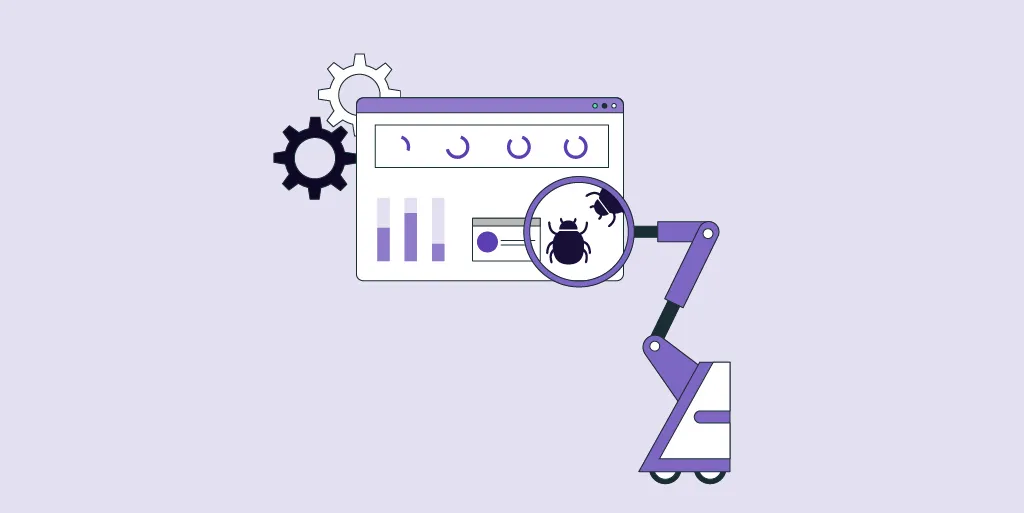
AI facilitates the automation of monotonous and time-consuming tasks within the quality process. These tasks encompass data collection, analysis, defect detection, and quality control. Through automation, AI diminishes the need for manual efforts, expedites processes, and enhances overall efficiency.
AI algorithms can consistently analyze large volumes of data and accurately perform complex calculations. This reduces the risk of human errors and inconsistencies in the quality process. AI-powered systems can identify data patterns, anomalies, and deviations, improving quality control.
AI algorithms excel in analyzing vast amounts of data and extracting valuable insights. In the quality process, AI can analyze data from multiple sources, including sensors, devices, and production lines, to identify patterns, correlations, and root causes of quality issues. This allows for proactive problem-solving and continuous improvement.
By leveraging machine learning algorithms, AI can predict quality issues before they occur. AI models can identify patterns and trends that indicate potential quality problems by analyzing historical data. This enables organizations to take preventive measures, reduce defects, and improve product quality.
AI-powered systems can monitor quality metrics in real-time and provide alerts when quality thresholds are breached. This allows immediate action, minimizing the impact of quality issues and reducing downtime.
AI can provide valuable insights and decision support for quality improvement initiatives. AI can identify critical quality factors by analyzing data from various sources, suggesting improvements, and supporting decision-making processes.
Artificial Intelligence empowers organizations to make data-driven decisions and optimize their quality processes.
Artificial Intelligence systems can continuously learn and adapt based on new data inputs and feedback. This allows them to improve their performance and adjust to changing quality requirements. AI-powered quality processes become more intelligent and effective as they learn from past experiences and incorporate new knowledge.
AI can help reduce quality control and defect management costs by automating and optimizing the quality process. Early detection of quality issues, proactive problem-solving, and improved process efficiency result in cost savings and improved resource utilization.
Integrating AI in the quality process brings significant benefits, including automation, improved accuracy, enhanced data analysis, predictive capabilities, real-time monitoring, decision support, continuous learning, and cost reduction.
These advantages enable organizations to achieve higher levels of product quality, operational efficiency, and customer satisfaction.
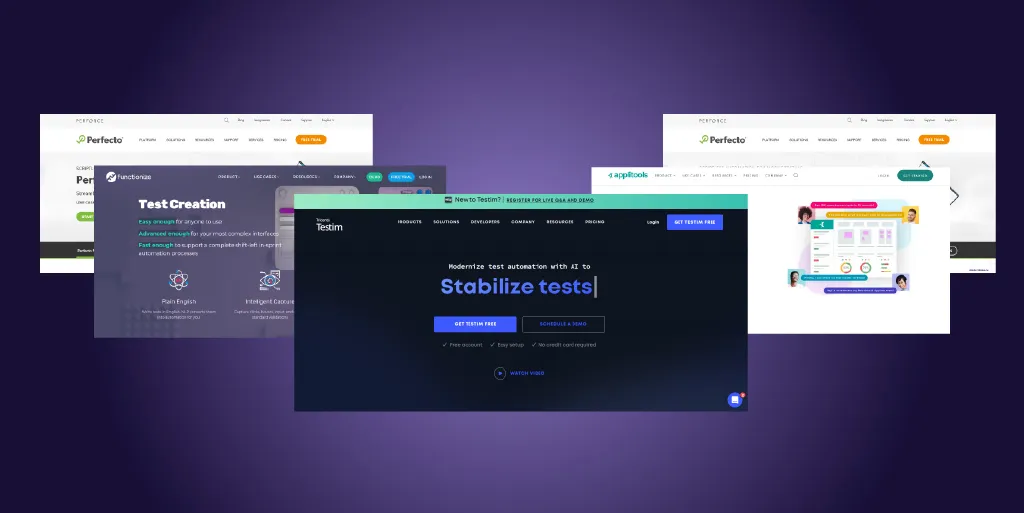
Several popular AI-powered test automation tools leverage artificial intelligence and machine learning capabilities to enhance testing processes. Here are five widely recognized AI-powered test automation tools:
TestCraft is a cloud-based test automation platform that utilizes AI and machine learning to assist in creating, executing, and maintaining automated tests. It offers a visual, codeless test creation environment that allows testers to build and maintain tests using a drag-and-drop interface.
TestCraft's AI engine helps in test maintenance by automatically adapting tests to UI changes.
Testim is an AI-based test automation platform that enables teams to create, execute, and maintain tests across web applications. Testim also provides intelligent test reporting and analysis, allowing teams to gain insights into test results and performance.
Applitools is an AI-powered visual testing and monitoring platform. Applitools uses ML & computer vision to compare screenshots of an application's UI and identify visual discrepancies. Applitools can automatically detect visual bugs across different devices, browsers, and screen resolutions, enabling efficient visual testing.
Functionize is an AI-driven testing platform that leverages machine learning to create and execute tests for web and mobile applications. It uses NLP to interpret test requirements and autonomously generates test cases. Functionize's AI engine learns from test runs to improve test stability and reliability over time.
These AI-powered test automation tools offer advanced capabilities that streamline test creation, execution, maintenance, and analysis. By leveraging artificial intelligence and machine learning, these tools enhance test automation processes' efficiency, accuracy, and effectiveness.
Artificial intelligence (AI) advancements for quality assurance have ushered in a new era of efficiency and effectiveness in software testing. Integrating AI into the quality assurance process brings many benefits that revolutionize how we ensure product quality.
AI eliminates manual effort through automation and accelerates testing, allowing teams to focus on more strategic tasks. Embracing AI in quality assurance is not just a technological leap but a strategic move toward ensuring excellence in software quality and staying ahead in today's fast-paced digital landscape.
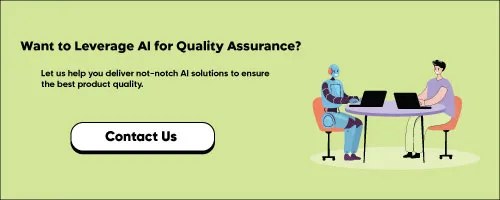
The future will see advances in AI-powered testing, increased automation and accuracy, and sophisticated quality control techniques.
Quality assurance in AI ensures the accuracy, reliability, and efficiency of AI systems, models, and systems.
AI technologies such as machine learning, natural language processing, and computer vision are used for automated testing, anomaly detection, and data validation.
Challenges include data quality issues, choosing suitable AI algorithms, and ensuring new AI paradigms are developed with changing software.
AI-powered test automation reduces testing time, increases test payability, and helps companies deliver high-quality products faster, ultimately reducing time and cost.
What Is a Push Notification and Why It Matters for Your App Strategy
By Dhruv Joshi
5 min read
Top React Native Development Companies to Build Scalable Apps
By Dhruv Joshi
5 min read
How Wearable Technology Is Driving Real-Time Data Experiences in Mobile Apps
By Sannidhya Sharma
5 min read
How to Use Augmented Reality in Retail to Boost Customer Engagement and Sales
By Sannidhya Sharma
5 min read

Technology


5 min
Wearable technology is reshaping mobile apps with real-time insights, enabling smart alerts, fitness coaching, health monitoring, and more. From smart rings to AR glasses, explore how these evolving devices are creating seamless, personalized experiences across various industries and everyday life.


Technology


5 min
Augmented reality in retail helps brands drive sales and reduce returns by transforming how customers discover, try, and buy products. This blog is your guide to using AR strategically, from choosing the right use cases to launching cost-effective AR experiences that delight customers and differentiate your brand.


Technology


5 min
The demand for high-quality video streaming apps has exploded, and it's not just Netflix leading the charge anymore. From niche platforms to corporate media ventures, businesses everywhere are realizing the massive opportunity in OTT app development to launch their own video streaming application.

Feeling lost!! Book a slot and get answers to all your industry-relevant doubts